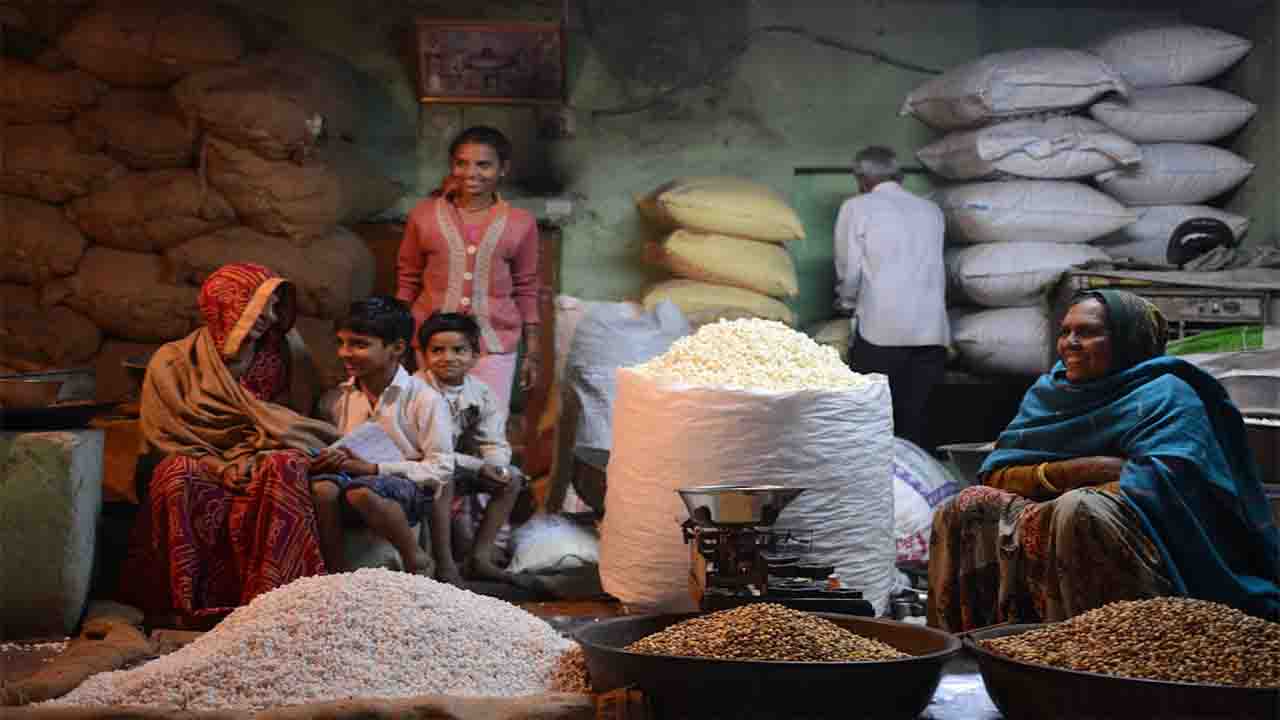According to the study conducted by Global SME Devnet PVT LTd under the title ‘Small & Medium Enterprises (SMEs) in Commonwealth Countries: An Analysis of Obstacles for Growth’, covering 132 economies, there are 125 million formal MSME (micro, small, and medium enterprises) of which 89 million operate in the emerging markets.
The formal MSMEs are more common in high-income economies and these formal MSMEs employ more than one-third of the world’s labour force. MSME density is increasing at a great pace in low and middle-income economies.
On an average, there are 31 MSMEs per 1000 people across the 132 economies and this figure grew by 6 percent per year from 2000 to 2009. MSMEs in high-income economies grew three times slower than low-income economies and five times slower than lower-middle income economies.
In about half of the high-income economies, formal MSMEs employed a minimum of 45 percent of the workforce, while this figure was 27 percent in low-income economies. Formal MSMEs employ more than one-third of the global population, contributing around 33 percent of employment in developing economies.
However, informal MSMEs, especially in developing countries, far exceed formal MSMEs by many times. For instance, in India in 2007, there were nearly 1.6 million registered MSMEs and 26 million unregistered MSMEs. This hints out the fact that there were about 17 unregistered MSMEs for every registered one.
SME density
Region-wise, East Asia and the Pacific have the highest ratio of MSME employment to total employment. For instance, in China formal MSMEs account for 80 percent of total employment.
However, formal MSME employment to total employment in South Asia is less than 100 million, and this is due to large informal MSMEs in the three countries – Bangladesh, India and Pakistan. It should be noted here that SME data on the informal sector are rare and data are not comparable across countries due to differences in the definition of the informal sector and in estimation methods.
There were total of 14 commonwealth countries, which belong to low-income group or low middle-income group. A regional classification revealed that 9 countries were from Africa, 4 countries from Asia and 1 country (i.e., Guyana) was from Caribbean region.
In Germany, SMEs represent 99.95 percent of all companies and employs about 68 percent of the working population (KFW). Except South Africa, all the countries have very high share of agriculture in value added. Out of the countries that the study covers, only South Africa have agricultural share comparable to the developed countries like United States and Germany.
In most of the countries, the state capacity defined as tax revenue as a percentage of GDP is less. This leaves not enough room for the state intervention. For this reason, development of SMEs is important for economic development and poverty alleviation.
Establishing property rights are important to free dead capital that could be used for productive purposes and compared with developed countries like the USA and Germany, the cost of registering the business as percentage of per capita GDP is too high in most of these countries.
In addition to prohibitive cost of registration, there is a higher degree of prevalence of corruption in Commonwealth Countries that significantly affects business decisions and created business-unfriendly environment.
Prolonged insolvency procedure
The prolonged period of insolvency procedures are one of the major stumbling blocks that makes business harder and put a kind of artificial brake on creative destruction-end of life cycle of a business, re-allocation of resources. Effective insolvency regimes save struggling firms, when possible, or reallocate assets of failing firms more productively.
These procedures—focused on the end of the business life cycle—also have a profound impact on the beginning as banks and investors are more willing to lend when they know they could recover at least some of their investment, not risking their entire personal fortunes. Long insolvency processes coupled with myriads of legal issues have, in fact, contributing increasing risks of long term and large-scale investments.
Access to finance
Access to finance has been one of the stumbling blocks that successive SMEs encounter in the Commonwealth; besides South Africa, all the other countries in the Commonwealth could be considered either as low income or lower-middle income countries (according to the World Bank classification).
Private deposit to GDP ratio
Low level of income also indicates low private deposit to GDP ratio and this, in turn, results in low private credit to GDP ratio. This, invariably, reduces access for SMEs to finance. There are substantial evidences that increase in GDP per capita, would , in turn, increase low private credit to GDP ratio.
In addition to lack of access to finance, in poor economies the demands for other banking spread is very low. As income raises the share of non-interest income to total income also increases.
This results in banks having interest rate income as their principal source of income. It is obvious, that the higher dependency on interest income has its own consequences as it makes loan costlier through either higher interest rate on loan or financial repression; that is basically low interest rate on saving or combination of both.
In other words, cost of capital in the most of the Commonwealth countries is almost prohibitive; with the rise in per capita income net interest revenue as a share of average interest-bearing (total earning) assets declines. Further, financial repression, which is basically low interest rate on saving, will lead to higher lending deposit spread.
Nature of SMEs in the Commonwealth
The survey has determined the nature of SMEs, primarily, in terms of their ownership and also participation of women in ownership. Among Asian economies the ownership held by the government is even lesser than the ownership held by the government in African economies.
The level of private and government ownership in African and Asian economies, invariably, implies that the level of foreign ownership is high in African economies, especially, among medium sized enterprises.
Participation of women in ownership and percent of firms with majority female ownership is also less in Asian countries compared with selected African countries.
Another perennial issue is lack of electricity supply and inability to receive steady electricity supply. SMEs could also become a source of foreign exchange earnings if and only they are able to meet the quality and quantity standards required to export their products or services overseas; according to World Enterprise Survey data, there are more than 10 percent of the small firms that have achieved an internationally recognised quality certification (this is roughly one fourth of the medium enterprises).
Small and medium enterprises in Asia are performing well in the areas of productivity and capacity utilisation, while their African counterparts are doing well in the areas of employment generation and acquisition of fixed assets.
Access to finance
Access to finance remains the most acute issue among the small enterprises in most of the countries. However, in other countries like Pakistan firms more concern about political instability than access to finance as the firms in Ghana.
For example, in South Africa, often seen as one of, if not the, most developed financial systems on the continent, 30.1 percent of enterprises have a formal bank loan, while in Rwanda 45.5 percent have a formal bank loan. Out of the selected countries, access to finance is most severe in case of Pakistan where according to the 2013 survey only 6.7 percent of the surveyed firms have a bank loan/line of credit, which is a decline from 8.6 percent in 2007. It is surprising that even with such a low level of bank penetration among firms in Pakistan very few firms reported access to finance as a major obstacle.
In all selected countries, more than 60 percent of these loans are collateralised and the collateral value exceed the loan value in most of the cases, sometimes twice of the loan value.
Poor property rights in the developing and least developed countries as explained earlier as one of the characteristics of these countries that makes availability of collateral difficult as in most of the cases property rights are not clear and enforceable. Establishing property rights can free these idling capitals and thus help in the development of SMEs.
Supplier’s credit to finance working capital is also scarce as not more than 25 percent of the working capital is financed by the supplier credit in the selected economies.
It is not very difficult to understand the scarcity of supplier credit, as many of the suppliers would be facing the same issue of funding working capital since the bank funding of working capital is scarce.
Some of the major issues are;
Market access; accessing successive markets has been a perennial issue that SME’s confront with in the Commonwealth. Government’s intervention is need to facilitate SMEs’ get market access to domestic markets as well as enable them to penetrate into export markets; GSP treatment; trade and investment liberalisation (e.g., regional trade agreements, bilateral trade agreements, bilateral investment treaties); and the establishment of foreign operations are some of the measure that could be adapted to address this issue.
Long term solutions include the creation of a Commonwealth custom union leading up to a Commonwealth Common Market (CCM).
Access to resources; Acommon issue thatCommonwealth-wide SMEs’ face is lack of access to resources ranging from people, required skills, fiancé, physical assents, technologies, know-how, knowledge and supply of raw materials.
Some of the issues of persons, skills and required knowledge could be addressed through long-terms reforms in the education sector as well as migration policies of countries that would attract best talents to the economies.
Government policies should be changed to facilitate the prudent allocation of physical assets, while taking immediate measures to amend the monetary as well as financial policies to attract foreign capital into the economy to reduce the cost of capital.
Regulatory framework which conditions business performance;
The processes of business registration and licensing; taxation; competition and bankruptcy laws; property and intellectual property rights; trade, fiscal, monetary and investment policy; legal system; customs procedures; and export/import procedures are some of the areas that need substantial improvements and reforms.
Overall simplification of business registration as well as a liquidation processes are some of the fundamental requirements to improve the business environment in most of the Commonwealth Countries. Substantial reforms are required to be made in the vital areas of business law such as competition and bankruptcy laws; property and intellectual property rights. Customs procedures; and export/import procedures should further be simplified to ensure greater efficiency and avoid corruption.
Supporting services provided by public and private organisations;
The quality of physical infrastructure and logistics systems; formal and vocational education; training services; business development services; and professional services such as accounting and legal advice have to be improved to further ease business and to create a business-friendly environment.
Business as well as financial services should be improved to make business ease and Commonwealth Nations should embark on a massive physical infrastructure development initiatives and FDIs should be encouraged through schema such as BOO, BOT and PPP as well as offering foreign investors attractive incentive packages including tax holidays, facilitating repatriation of profits.
Consumer demand; Change in consumer preferences.Programmes may introduce to empower SMEs to enable them to weather the changes in the market , including change in consumer preferences.
Some of the structural and internal issues;
Management and personnel issues; Lack of scientific management skills; labour shortages; low skills and education of staff; lack of personal commitment and ambition are some of the managerial issues that SMEs in the Commonwealth face.
Well-crafted Training Programmes would address the training as well as knowledge gaps, while clear-cut career path would address some of the issues that de-motivate workers.
Capacity to respond effectively to competitors; Substitutes for products and services; diversified product and service lines; low cost structure; technical and operational discrepancies.
Capability and flexibility to respond to changing circumstances;
The availability to access key resources; capacity for process and product innovation; and flexible supply chains are also issues that SMEs face.
These areas have to be further improved to increase the competitiveness of SMEs in the Commonwealth.
Contestable market power and capability to create new market niches;
Firms need to enhance their marketing capabilities as well as branding. Absence of culture of innovation is another issue that has to be addressed to empower SMEs to compete in international markets.
Apart from that SMEs need to adapt customer/market orientation approach in responding to markets and consumer needs.
What is noteworthy is the fact that most of the issues that SMEs face in the Commonwealth are common issue that have become part of the business environment in most of the Commonwealth countries.
Simplification, systermisation of processes, substantial legal reforms, particularly, in the Commercial Law, improving trade relations within the Commonwealth and outside the Commonwealth through preferential trade agreements, creating common markets would, eventually, lead to create business-friendly economic environment.
Stamp out corruption is a major systemic issue that has to be addressed through drastic measures in almost all the areas of governance. Creating an enterprising culture in the Commonwealth would, in the long run, make MSMEs a harbinger of prosperity and wealth.
Due to myriad of factors SME sector in the Commonwealth suffers from, more or less, systemic and structural defects of the economies and a host of internal managerial issues. It is the responsibility of governments to address those issues that hamper the growth of SMEs in the Commonwealth and make the SME sector an engine of growth.
















